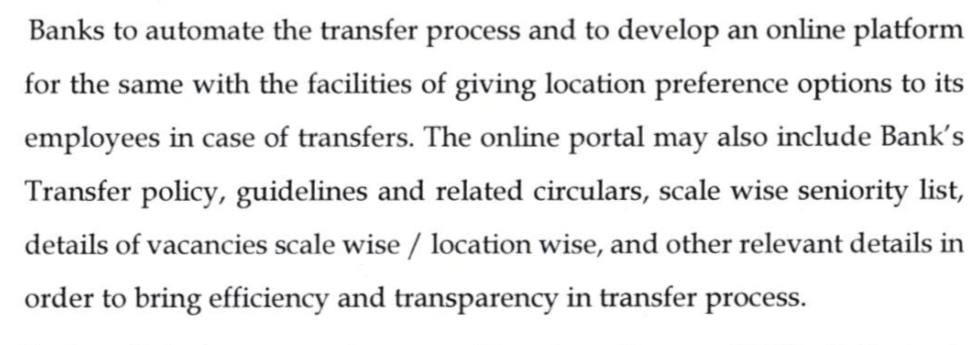RRBs Non-Compliance on Automation in Transfer Raises Concern Over Power Misuse and Transparency
Regional Rural Banks (RRBs) face rising concerns as transfer automation remains unimplemented, enabling discretionary postings and weakening transparency and staff safeguards.

Author: Saurav Kumar
Published: November 24, 2025
Nine months after the Government of India notified a revised transfer framework for Regional Rural Banks (RRBs), the mandated automation of the transfer process remains largely unimplemented. Employees across several RRBs argue that the absence of an online, rule-based system has enabled opaque decisions, discretionary postings and misuse of administrative authority—undermining the very objectives of the new policy.
Automation Mandate Ignored
The revised guidelines require banks to develop an online platform for transfer requests, location preferences, vacancy lists, seniority details, and policy documents—aimed at improving transparency and efficiency.
Employees say that despite clear directions, most RRBs have made no visible progress toward building or operationalising such a
system.
An Assam Gramin Bank employee noted that automation was intended as a “structural safeguard”, preventing discretionary transfers and ensuring fairness, but the continued delay “raises serious questions about compliance and intent”.
Advertisement

Image: Transfer policy document mentions about Automation
Misuse of Power
Employees recount several instances where lack of automation allowed transfer rules to be bypassed.
A Telangana Grameena Bank (TGB) officer told Kanal, “An employee in a Central India RRB was transferred arbitrarily because he questioned a management decision. This is a misuse of administrative power. Automation could prevent such actions.”
A similar episode occurred in the erstwhile Ellaquai Dehati Bank (EDB), where an officer was posted to a distant branch after raising internal concerns. Staff say such cases highlight why a neutral, rule-based system is urgently needed.
Transparency Gaps
Employees argue that automation is equally critical for bringing transparency to vacancy positions, seniority lists, and transfer cycles.
An officer from Odisha Grameen Bank (OGB) said, “Automation would give employees clarity on vacancies and allow them to select preferred locations. Transfers would then follow objective criteria—not hidden decisions.”
He added that automation could also curb difficult postings, which employees allege are sometimes used punitively.
A staff member of Jharkhand Rajya Gramin Bank (JRGB) echoed this concern, saying, “Vacancy positions across branches remain undisclosed during transfers. Automation would finally ensure that employees have the right to see available vacancies, making the entire process transparent and fair.”
Insiders say that most RRBs do not publish vacancy lists, waiting lists, or transfer rosters. Promotion lists are disclosed—but transfer-related disclosures remain opaque. Karnataka Grameena Bank is cited by some employees as one of the few RRBs that publishes vacancy details.
Safeguards for Veteran Staff
Automation could help protect ageing employees from unsuitable postings—another area where staff say violations occur.
An officer told Kanal, “Employees over 55 should not be posted to difficult centres. Automation can ensure these safeguards are respected. In the manual system, such violations have happened repeatedly.”
Point (xi) of the transfer notification allows exemption for staff above 55 from remote postings “as far as possible”—a clause employees believe is best enforced through automated checks rather than individual discretion.
Advertisement

Image: Transfer policy on exemption of employees above 55 years of age remote posting
Similarly, the persistent non-compliance on automation mirrors the broader pattern of delays seen in implementing 12th BPS benefits across RRBs.
As the automation mandate remains unimplemented across many RRBs, concerns around discretionary transfers, misuse of authority and lack of procedural transparency continue to mount. Employees argue that the credibility of the revised transfer framework depends on the creation of an online, rule-driven system—without which reform remains incomplete.
The central question now is whether RRBs will finally operationalise automation and deliver a fair, transparent and accountable transfer process for their workforce.
Advertisement
No comments yet.
